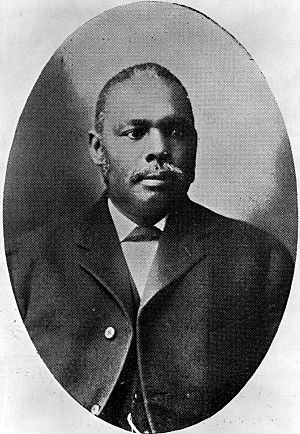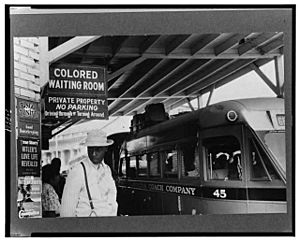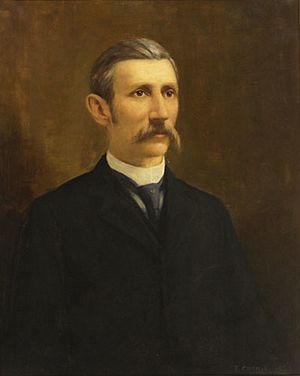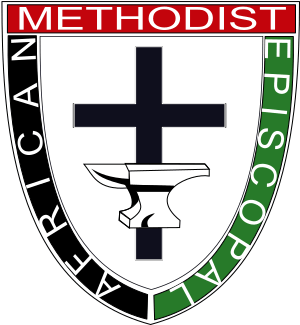James Dean (judge) facts for kids
Quick facts for kids
James Dean
|
|
|---|---|

A photograph from circa 1870.
|
|
| Born | February 14, 1858 |
| Died | 1914 |
| Occupation | Educator, judge, minister, lawyer, businessman |
James Dean (born February 14, 1858 – died 1914) was a very important person in Florida's history. He was the first African American judge elected in Florida after the Reconstruction period. Dean was born in Ocala, Florida. He studied at Cookman Institute and Howard University. He was very active in politics and his church.
He became a county judge in Monroe County, Florida. However, Florida Governor Francis P. Fleming removed him from office. This happened after he performed a marriage for a Cuban couple. Years later, in 2002, Governor Jeb Bush officially cleared his name.
Contents
Early Life and Education
James Dean was born in Ocala, Florida, on February 14, 1858. He was likely born into slavery. His family later moved to Wellborn, Suwannee County. There, he grew up attending the African Methodist Episcopal (AME) church. He also went to a school run by the National Freedman's Relief Association.
Dean's Schooling
From 1865 to 1873, Dean attended schools in Lake City and Suwannee County. He wanted to become a teacher. In 1874, he went to Cookman Institute in Jacksonville, Florida. This school trained Black religious leaders and teachers.
He graduated from Cookman Institute in 1876. After that, he visited schools for African American children across north Florida. He then taught and served in his church for about a year in Live Oak, Florida. In 1883, Dean graduated at the top of his class from Howard University. He earned a Bachelor of Arts degree. He then continued his studies at Howard University School of Law, earning a law degree in 1883 and a master's in 1884. He was again the top student.
Political Work
James Dean lived during a time of segregation and Jim Crow laws. These laws kept Black and White people separate and unequal. Dean was a Republican activist. He held many important jobs throughout his life.
Early Political Roles
In 1879, Dean started working for the government in Key West. He was a special inspector of customs. This job introduced him to local and state politics. While studying law at Howard University, he also worked as a clerk for the Post Office Department.
In 1880, Dean was chosen to represent Monroe County at a Republican meeting in Washington D.C. He supported George W. Witherspoon, even though Witherspoon was a Democrat. In 1881, Dean became assistant secretary of the Republican State Convention. He was also chosen to represent Florida at the Republican National Convention.
Leading a Conference
In 1884, Dean became president of the State Conference of the Colored Men of Florida. This meeting was held in Gainesville, Florida. Dean was a fair leader during this politically charged conference.
The conference wanted to convince voters to elect an Independent Governor. This governor would help with their goals. Their goals included:
- More money for African American schools to help people learn to read.
- Fair treatment in trials and on juries.
- Protection for Black voters to make sure their votes counted.
- More Black people in state, county, and city government jobs.
- Equal treatment on public transportation, like buses and trains.
- Restoring voting rights for Black people accused of minor crimes.
Dean strongly believed in the importance of education. He wanted money from slavery reparations to fund Florida public schools. At this time, Florida was trying to improve education for African American children. However, many Black people still struggled to read compared to White people.
In October 1884, Dean was allowed to practice law in the District of Columbia's Supreme Court. In 1888, he was elected as a County Judge.
Time as a Judge
Dean became a Monroe County Judge in January 1889. But his time in office was very short. After less than eight months, he was accused of breaking the law. Governor Francis P. Fleming suspended Dean from his judgeship on July 23, 1889.
The Marriage Controversy
The accusation against Dean was that on January 9, 1889, he knowingly gave a marriage license to a White man (Antonio Gonzales) who wanted to marry a mulatto woman (Anna Maloney). At the time, marriages between White and Black people were against the law.
Dean said that Antonio looked White, but Antonio swore under oath that he was Cuban. Dean believed that because Antonio said he was Cuban, the marriage did not break any laws about different races marrying. If Dean had refused the license, he might have gotten into trouble for not believing Antonio's sworn statement.
Governor Fleming was unsure about removing Dean. But when Dean defended himself, he said things that offended Cuban residents. They then asked for Dean to be removed. It became politically smart for Fleming to remove Dean. He replaced him with a Cuban native, Angel De Lono. This pleased many groups, including Democrats and some Republicans. Even though the Senate did not officially remove Dean, he was forced to step down because the governor had already appointed someone else.
Public Support for Dean
In the late 1880s, many cities with strong Black political involvement had their city charters taken away by the state government. Key West's charter was removed the same year Dean lost his job.
Dean's removal caused some protest. On August 1, 1889, about 800 people in Monroe County signed a petition. They were from all backgrounds and political groups. They asked Governor Fleming to stop his order and give Dean a fair trial. The petition had five pages of signatures, but it did not change the governor's decision.
Dean refused to resign at first. He said he had not broken any law on purpose. He believed those who testified against him were lying to get him removed. Dean wrote letters to Governor Fleming, explaining that he was innocent and would not step down. He even said that Governor Fleming had gone beyond his powers under the Florida Constitution. Dean tried to appeal to Florida's Supreme Court, but he was denied a trial. Less than a year after becoming a judge, Dean was forced to resign.
Later Life and Legacy
In 1889, Dean married Victoria J. Brooks Braff. Their marriage was difficult and did not last long. After losing his judgeship, Dean went back to practicing law.
Church and Community Work
In 1892, Dean moved to Tampa. He became a principal and helped rebuild the Harlem Academy, a school for African American students, which had burned down. He also became very involved in the local AME church. He was asked to become a minister. His attempt to divorce his wife caused some debate about his ordination.
While there are not many records of his later ministry, he gave a speech at Cookman Institute in 1894. It was called "The Marvelous Progress of Modern Civilization is Due to the Influence of Christianity." He was known as a good public speaker. Because of the issues with his divorce, Dean was moved to North Carolina to lead a district of the AME church. He earned a Doctorate of Divinity Degree.
In 1902, Dean tried to fix things with his wife. His church work brought him back to Florida, to Pensacola, Florida. In Pensacola, he was very successful. He helped build a $20,000 church and continued to fight for better education for African Americans. He also helped start an organization to support Black business owners. Victoria moved to Pensacola and became involved in the AME ministry too.
In 1903, the couple moved to Jacksonville. Dean tried to become a high-ranking official in the AME church. He campaigned against John H Dickerson, another important Black leader in Florida. Dean did not get the top position, but he was appointed Recording Secretary and a presiding elder. This upset Dickerson. Dean also served as a pastor at the respected Mt. Zion AME church. However, a new bishop, Benjamin Tucker Tanner, who was an ally of Dickerson, moved Dean to Ocala. This gave Dickerson a better chance to become a bishop.
In Ocala, Dean started a weekly newspaper called the News Carrier. This allowed him to share his ideas since his church position was limited. The paper had many readers, but Tanner and Dickerson opposed it. Dean even had three men arrested for spreading false information about his paper. Because of this, Tanner suspended Dean from his church work in January 1906.
Later Career and Death
Even though all charges against Dean were dropped, he decided to leave his ministry. He started a law and real estate office. Many African American lawyers at the time had to have other jobs to make enough money because of Jim Crow laws. He also became involved with Black businessmen. He oversaw the Florida chapter of the National Negro Business League, which helped Black businesses.
Dean stayed in Jacksonville until Victoria died on March 28, 1910. They did not have any children. After Victoria's death, Dean returned to church and education work. He served as a trustee for Wilberforce University in Jacksonville. He still hoped to become a bishop but was not successful. In 1912, he was transferred to a distant position in Dayton. After 1912, Dean worked with many organizations, including church committees, the Progressive Order of Men and Women, the Colored Bar Association, and the Howard University Alumni Association.
James Dean passed away on December 19, 1914, at his home in Jacksonville, Florida. He was buried in Wellborn. Many people attended his funeral because he was well-respected in the community. Tributes came from many groups he was part of, like the Colored Civic League. News of his death even reached newspapers in New York.
Posthumous Restoration
In 1926, W.E.B. Du Bois sent someone to learn about Judge James Dean. This person, J.D. Wetmore, wrote about the controversy around Dean's removal. However, Wetmore also said that Dean might have been weak for giving up his office. He also commented that while Dean had a successful political career, he was very careful not to cause trouble with White citizens.
Because of the unfair way he was removed as county judge, his judgeship was officially restored long after his death. Florida Governor Jeb Bush did this on February 26, 2002. It was decided that the marriage Dean performed was indeed legal. It was also noted that the state Senate did not remove Dean from office by June 5, 1891. This meant he should have kept his position.




